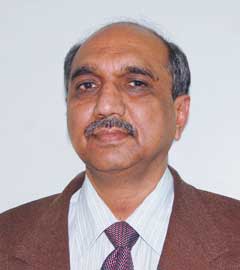Hampering the Cause
Organ donation finds few takers in the country due to lack of awareness and understanding about organ donations, religious attitudes, superstitious belief and bureaucratic hurdles
By Dr S P Yadav
In a vastly populated country like India where near about 200,000 people need a new kidney every year and around 100,000 need a new liver, only few percentage of the demand for new organs is met, which amounts to 2% – 3% of the total demand.
Finding a donor match is difficult to begin with. In India, this challenge is compounded by bureaucratic hurdles and lack of awareness. A lot of red-tapism and paperwork involved in getting a transplant done also contributes in worsening the situation.
Under Indian law, for instance, it’s relatively easy for close relatives to donate an organ, or part of it, to a family member in need. According to existing rules, if the potential donor is not related to the person who needs the organ, the transplant needs to be approved by a state-level committee or by a hospital committee that includes government officials. This results in unnecessary delay in the donating process.
Most of the Indians, mainly the north Indians carry a superstitious belief that donating organ is an evil practice and an individual’s soul will not rest in peace if the body parts are mutilated. This is mainly due to the lack of awareness prevailing over there. The most common myth prevailing in the process of organ donation is that, if the doctor knows that the individual has given his consent for organ donation, he wouldn’t work hard to save his life.
Organ transplantation can be lifesaving for patients with organ failure. Thousands of these patients may die because there are not enough donated organs to meet the demand. The main factor limiting organ donation is that less than half of the families of potential donors consent to donation. Many organs can be donated, including heart, intestines, kidneys, liver, lungs, and pancreas. Tissues that can be donated include corneas, heart valves, and skin. Donations may be used in people who have organ failure, who are blind, or who have severe burns or serious diseases. If you wish, you may specify which organs and tissues you would like to donate. While you are alive, you may donate a kidney or part of your liver to a specific / related matched patient. More than 6,000 transplants from living donors are performed each year. The number can go up and save many more lives if people give consent for donating their organs after death.
Any person can become a donor irrespective of age, caste, religion, community, current or past medical condition. However, patients suffering with active cancer, active HIV and active infection or intravenous drug use cannot do the same, though most cancer patients can donate cornea. There are two ways in which an individual can opt for organ donation: Opt In, where the donor gives consent, or Opt Out, where anyone who has not specifically refused is considered a donor. In India the Opt In system is adopted.
Organ transplant works on two principles, firstly, living donor transplant. Secondly, deceased donor transplant. In living donor transplant, a living person decides to donate his or her organ(s) to someone in need of a transplant. Living donors are usually family members or close friends of the person who requires a transplant. In deceased donor transplant, organs from a brain dead individual are transplanted into the body of a living recipient. The deceased individual in this scenario can only be a victim of brain death. This kind of transplant initially requires the recipient to wait on a list until a suitable organ is available based on the recipient’s medical profile.
The shortage of organs is virtually a universal problem. Even in developed countries, where rates of deceased organ donation tend to be higher than in other countries, organs from this source fail to meet the increasing demand. The prerequisites for the success of a transplantation programme include awareness, positive attitude of the public towards organ donation and consent by relatives for organ donation in the event of brain death.
Lack of knowledge and understanding about organ donations, religious attitudes, and superstitious beliefs have generated fear and mistrust in the minds of the common man and, especially, the terminally ill patients. To increase the number of donors, initiatives should be taken to ease the entire process by making the people aware about registration for organ donation as this may help the doctors to found the donor more easily.
(The author is senior Urologist and CMD, Pushpanjali Hospital, Gurgaon)


